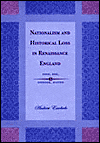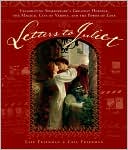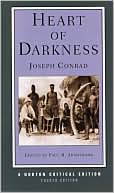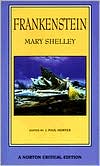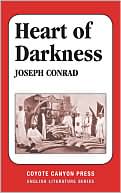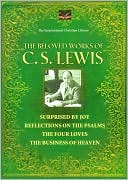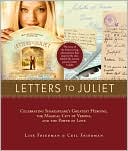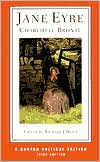Nationalism and Historical Loss in Renaissance England
Andrew Escobedo here seeks to provide a new understanding of the emergence of national consciousness in England, showing that many Renaissance writers articulated their Englishness temporally, through an engagement with a history they perceived as lost or alienated. According to Escobedo, the English experienced nationalism as a form of community that disrupted earlier religious and social identities, making it difficult to link the national present to the medieval past. Furthermore, he...
Search in google:
Andrew Escobedo here seeks to provide a new understanding of the emergence of national consciousness in England, showing that many Renaissance writers articulated their Englishness temporally, through an engagement with a history they perceived as lost or alienated. According to Escobedo, the English experienced nationalism as a form of community that disrupted earlier religious and social identities, making it difficult to link the national present to the medieval past. Furthermore, he argues, the English faced the nation's temporal isolation before the Enlightenment narrative of historical progress emerged as a means to interpret novelty in a positive light.Escobedo examines how John Foxe, John Dee, Edmund Spenser, and John Milton used narrative representations of nationhood to mediate what they perceived as a troubling breach in history, attempting to bring together the English past, present, and near future in a complete and continuous story. Yet all four authors also register their concern that historical loss may be an inevitable feature of a "modern" England, and they come to see their narratives as long tapestries that spontaneously rip apart as they grow, obliging the weaver to return to repair them. Focusing on Renaissance England's perplexing sense of its timeboundedness, Escobedo presents early national consciousness as stranded awkwardly between the premodern and modern. Author Bio:Andrew Escobedo is Assistant Professor of English at Ohio University.
PrefaceIntroduction: The Nation in Time1Ch. 1Traitorous Martyrs, or A History to Forget?25Ch. 2Antiquarian History: Dee, Spenser, and the Tudor Search for Arthur45Ch. 3Apocalyptic History and English Deferrals81Ch. 4Poetical History: Spenser and Milton Ornament the Nation141Ch. 5From Tradition to Innovation: Foxe, Milton, and English Historical Progress205Conclusion246Index of Names255Index of Subjects259
\ From the Publisher"Andrew Escobedo develops here the highly original argument that English nationhood issued not from the emerging conviction of a shared national culture but rather from a profound experience of historical alienation from a distant past. Alert to the mythmaking that bolsters the search for national origins in a necessarily misty past, Escobedo brilliantly analyzes the various collective fictions produced under the rubric of history that helped engender England's burgeoning sense of national consciousness."-Michael Schoenfeldt, author of Bodies and Selves in Early Modern England: Physiology and Inwardness in Spenser, Shakespeare, Herbert, and Milton\ "Nationalism and Historical Loss in Renaissance England is an important contribution to the study of Renaissance historiography and to current scholarship on several of the most significant early modern English writers. The book examines Michel de Certeau's insight that the act of historical recovery paradoxically entails a simultaneous act of historical distancing. Andrew Escobedo applies de Certeau's concept to an English context, leading to rich and original readings of the texts that helped to forge the consciousness of the English nation."-John Watkins, author of Representing Elizabeth in Stuart England: Literature, History, Sovereignty\ "Andrew Escobedo's critical narrative about 'the ontology of early national consciousness' is lucid, learned, embedded in recent scholarship, and above all humane and original. He maps his narrative across a wide-ranging grid: for each of three historical modes-antiquarian, apocalyptic, fictional-he creates a 'diachronic' narrative linking two of his title authors: Foxe, Dee, Spenser, Milton. The book constitutes a profound meditation on the English Renaissance project of plucking a new national identity out of a distinct historical trauma: under pressure from an absent national origin and an ever-looming apocalyptic imminence, these authors help forge the nation not as an ideological site for conformity or resistance but as an innovative community that prepares for the Enlightenment model of historical progress."-Patrick Cheney, author of Shakespeare, National Poet-Playwright\ "In Nationalism and Historical Loss in Renaissance England, Andrew Escobedo sets out to supplement the question 'where is the nation?' (much discussed by recent studies confronting the geographic oddness of English/British national identity) with the equally important question 'when is the nation?'. . . The twin impact of the break with Rome and the emergence of a more skeptical historiography left sixteenth-century Englishmen with a less secure history than their medieval predecessors. . . . Escobedo's account of their efforts is stimulating in part because it challenges easy assumptions."-Times Literary Supplement, April 23, 2004\ "In this innovative and highly rewarding book, Escobedo argues that the emergence of English nationalism during the Renaissance was irrevocably tied to Tudor fears that the history of the nation's origins was lost and/or that its present was incommensurate with or alienated from its past."-Choice, September 2004\ \ \
